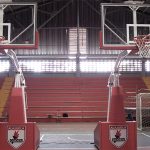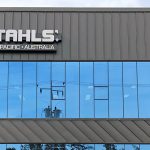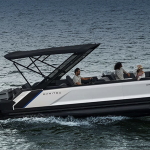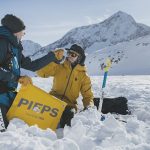Each Year, Outdoor Industry Association hosts the Capitol Summit in Washington D.C. in order to give members the opportunity to have their voices heard in a collective lobbying effort, and each year Congress becomes more receptive to OIAs message. OIA staff, with the help of several experts on international trade and Capitol Hill environmental issues, created an agenda that addressed international trade, small business healthcare, the potential re-write of the National Parks Service bylaws, and the state-side Land and Water Conservation Fund. Many of the Industrys leaders gathered in support of this agenda, with business owners, CEOs, and VPs from nearly every corner of the industry, including hardgoods vendors, softgoods vendors, non-profits, and retailers.
The top priority for the event was preserving funding for the Stateside Land and Water Conservation Fund. This Kennedy-era program was designed as a method to use off-shore oil drilling royalties to preserve the natural open spaces and parks all over the country. A portion of these oil royalties are supposed to be used to match, dollar-for-dollar, monies spent on select state park and recreation projects. Last year, the administration attempted to zero-out the program, but thanks to the efforts of OIA is was spared with $30 million in funding. This is a considerable decline compared to $100 million, which was the average over the last five years.
There were two very positive developments on this program during the Capitol Summit. Before OIAs Summit, Senators Collins and Salazar asked their colleagues to sign a letter requesting $100 million in funding for Stateside LWCF. 50 Senators signed on. Due to the work of OIA members there is now a majority of the Senate supporting this request, with at least 52 Senators signing the letter, and others who have written their own.
Support for this program is coming form both sides of the Senate floor, and in fact, every Republican whose position is seriously challenged in this years election has signed the letter. The second major development is the possibility of including funding for the LWCF in the Senate Energy Bill, which could be drafted and passed this year. In this form, the LWCF could see up to $250 million in guaranteed funding. However, there is still much work to be done to ensure this could happen and support is needed from several other states, especially New Mexico.
Since the Outdoor Industry is made up of a myriad of small independent businesses, promoting legislation that would allow Small Business Healthcare Plans was also a priority at the Capitol Summit. This issue, formerly known as the Association Healthcare Plan, has been stalled in Congress for several years now, mainly due to the vastly different state regulations on health insurance coverage. This Bill would be of particular benefit to retailers, many of whom need to shop for and change their health coverage on a yearly basis in order to keep expenses down.
This Bill could help save small businesses $450 to $1,250 per covered employee per year. It would allow small businesses to pool their resources through an industry association, like OIA, and have better bargaining power and lower insurance administrative costs by as much as 85%. There remains some opposition to this bill. However, there were also several very receptive senators who could help push it through.
For the first time this year, OIA addressed several important international trade issues dealing with importing synthetic outerwear and waterproof footwear. After the difficulties with ski and snowboard pant quotas faced across the industry this past winter, OIA members worked proactively to ensure that these problems will not happen again. Since there are no domestic manufacturers of performance outerwear pants, there does not appear to be much resistance to a quota exemption.
The second international trade issue deals with waterproof footwear. Under the current tariff laws, all waterproof footwear, including Gore-Tex trail running shoes, are lumped into the same category as protective footwear steel toed boots and firemens boots. Because of this, the import duties are 37%, whereas all other import duties are 20% or less. Many types of protective footwear do have sources of domestic manufacturing, but there are no available sources of domestic production for waterproof hiking boots or trail running shoes. Many in Congress were receptive to the 12 bills dealing with these issues as well. 10 of these bills would reduce tariffs to zero, while two would bring tariffs down to 20%.
Finally, the National Parks Service bylaws re-write is still underway, but OIA members were assured that the Hoffman Draft of these regulations is “dead and buried.” The NPS has recruited several retired park rangers and officials to help re-draft these policies with more focus on conservation. Previously there was a considerable emphasis on re-writing the rules to allow more motorized access, regardless of the impact on the land. Much of the Hoffman draft was due to the influence of former Secretary of the Interior, Gale Norton. However, since Norton has departed, it seems there is now an OIA friendly presence in the administration.
On a separate note, on the final day of the Summit, Eagle Creek founder Steve Barker spoke for the outdoor industry in wishing good luck to OIAs VP of government affairs, Myrna Johnson, who is stepping down after ten years to pursue a masters degree at the John F. Kennedy School of Government at Harvard. Myrna was a driving force at OIA, leading the organization from behind the scenes and helping to create a positive force on Capitol Hill and throughout the industry.















